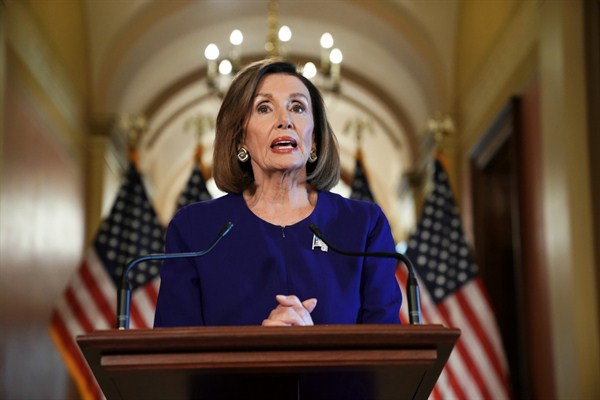Politics was always going to play an outsized role in congressional deliberations on the revised NAFTA deal—now known as the U.S.-Mexico-Canada Agreement, or USMCA—as it does with most trade agreements. Assuming that President Donald Trump addresses their concerns about labor standards in Mexico and other issues, House Democrats will have to decide whether to give the president a “big win” that he can trumpet in next year’s election. Trump will have to decide whether he’d rather have that or, by refusing to accommodate their demands, a stick with which to beat up the Democrats as do-nothing partisans. The impeachment inquiry raises the stakes in this debate and could scramble the normal politics.
For the past 30 years, congressional votes on trade agreements have often been divided along party lines, with almost all Republicans generally voting in favor, and most Democrats opposed. Recent polls suggest that voters’ views on trade may be shifting, with Democrats now more positive than Republicans. But congressional votes reflect the priorities of key organized constituencies supporting each party, namely business interests for Republicans and labor unions for Democrats.
In the case of the USMCA, that pattern is clearly discernible, with the Chamber of Commerce and other business groups encouraging Congress to vote as soon as possible and AFL-CIO President Richard Trumka warning that rushing the vote would be a “colossal mistake.”

